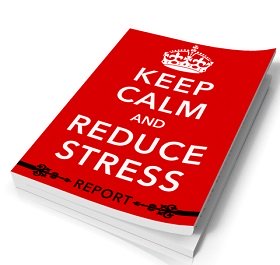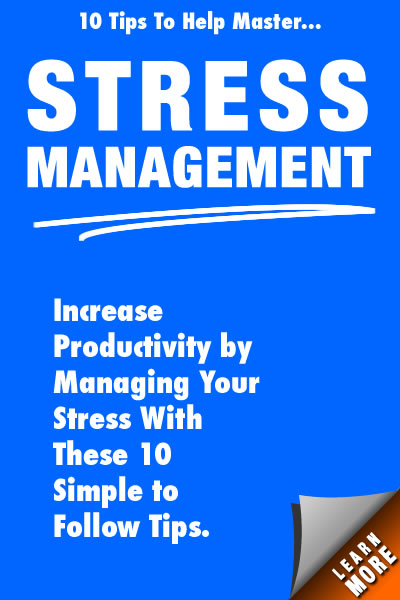Job Stress and Burnout?
Try These Strategies
Stress and burnout may be closely related but how we handle the two depends on the individual person. If you are working at a job that is unrewarding, monotonous, filled with conflict or overwhelming, you can be experiencing both at the same time. We’ve talked about how some stress levels can keep us motivated and challenge us to work more productively.
Yet, when stress levels increase to a danger level, and you're constantly feeling overwhelmed at work, burnout can follow. Burnout can be defined as, a continuous lack of mental, physical and emotional energy and a feeling of hopelessness. Stress and/or burnout are conditions that many are facing today.
No one likes to wake up in the morning, go to work, work diligently at a job trying to get everything done, and then at the end of the day, receive no acknowledgement of a job, well-done. You become unmotivated. You wonder, “What’s the use, because no matter how hard I try, nobody cares.”
We identify two major conditions that can lead to burnout. The first condition is that you have little control over your situation. This can cause a lot of stress and burnout is likely to follow. The second condition is that there is a lack of quality leadership in charge of the situation.
Let’s look at the first condition. Having no control of a situation may mean that you are given assignments that are unreasonable (maybe you have too much work with too little time to complete everything). There may have been layoffs at your company, and you are now handling the work of other employees who are no longer there. Another example of unreasonable expectations may be that you are being asked to complete work assignments without the proper training.
The second condition focuses on leadership and direction. Without a sense of direction, how do you know for what to strive? What are the goals of the company? The leadership may be asking you to complete job assignments within a highly pressurized time frame, without providing necessary resources. Poor leadership can contribute to increased levels of job stress and burnout when communication is unclear or confusing, when there is no recognition of employee accomplishments, and when compensation levels are no longer matching the quality of work.
We all have experienced office stress when we are worried about consequences if something goes wrong in our work production. But experiencing ongoing stress can lead to burnout.
Recognize the symptoms of burnout: low energy, change in sleep patterns, increase of physical ailments, and lack of caring. Boredom sets in, which leads to feeling inadequate or feeling unmotivated. Situations that excited you before no longer interest you. Here is how to monitor the levels of job stress and burnout that you are experiencing.
- Assess the Situation.
Take an honest look at your job duties and responsibilities and notice any changes that may be occurring in expectations and work environment. If the stress levels are increasing and you are starting to experience any of the warning signs of burnout, start to be proactive in preventing further damage. - Stop What You are Doing.
If you are feeling the effects of burnout, quit doing what you are doing and make a change to do something else. Review your job description with your supervisor and revise the job duties and responsibilities to reflect changes that may have occurred. If the work environment or the expectations for your job duties cannot be changed, you may need to look for a different job or career. - Take Care of Yourself.
Stress and burnout can have a detrimental effect on your physical, mental and emotional health. Eat well and stop eating non-nutritious fillers. Exercise regularly, even if just 10 minutes a day, to rid yourself of stress buildup. Gett more sleep. - Learn to Laugh More.
Laughter is a wonderful stress reliever and humor can help you stop taking life at work too seriously.
Job stress and burnout can be debilitating, but they don’t have to be. Take precautions early if you notice symptoms of increased levels of job stress or job burnout. Life is meant to be enjoyed.
Publication Offers Ways to Combat Stress and Burnout
Stress Management in the Workplace
POPULAR ARTICLE!
Join Calm Starts Here, and receive FREE How to Get a Good Night's Rest and Stop Worrying.
Share this Page on SheToldMe.com
Become a FaceBook Fan









